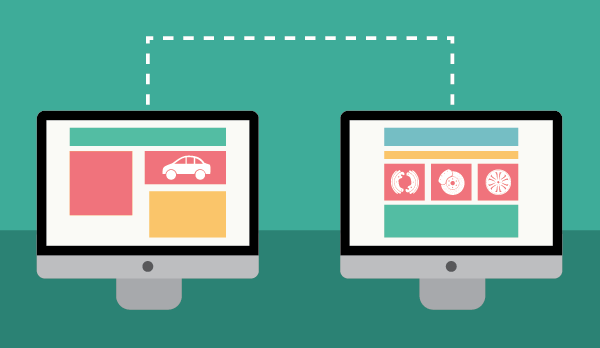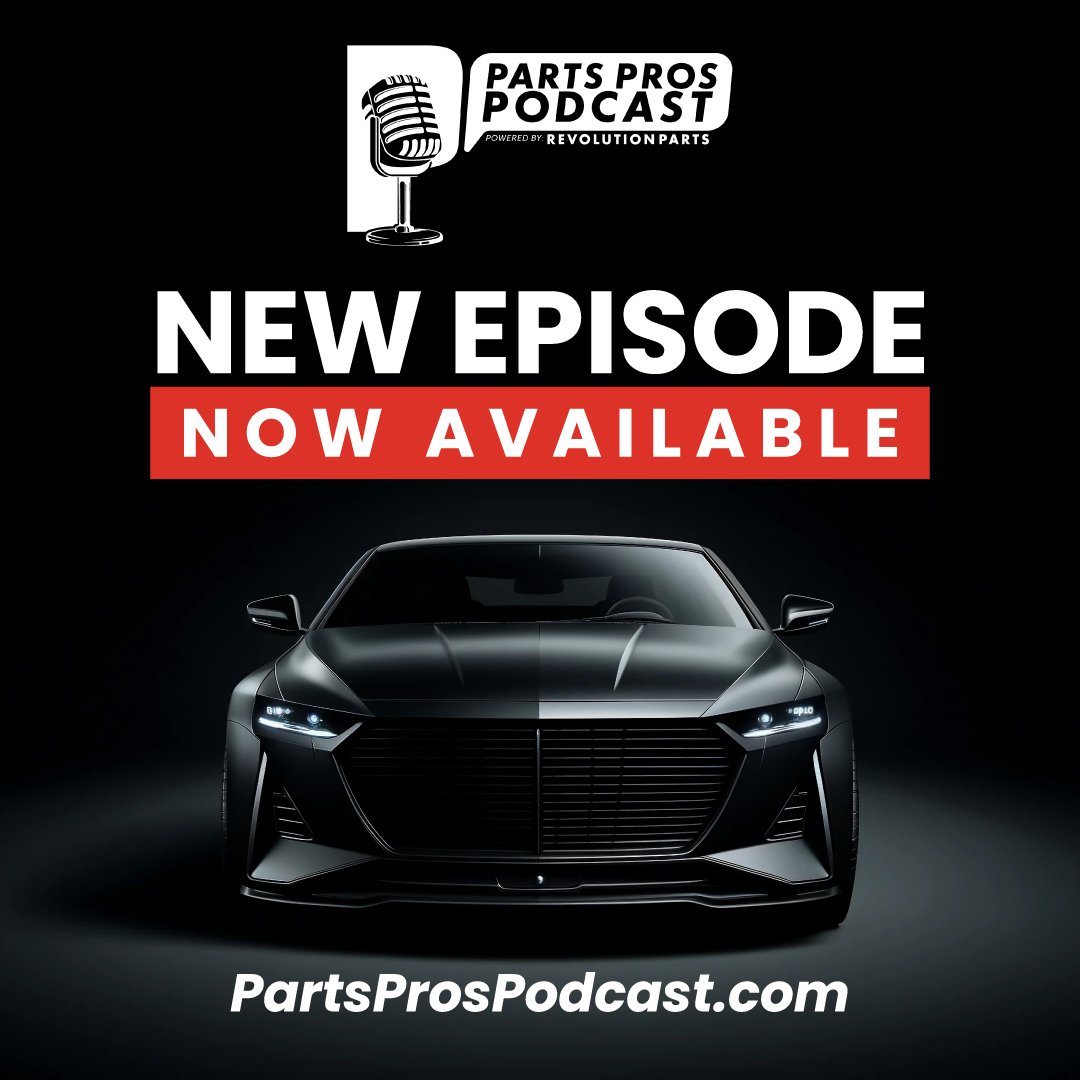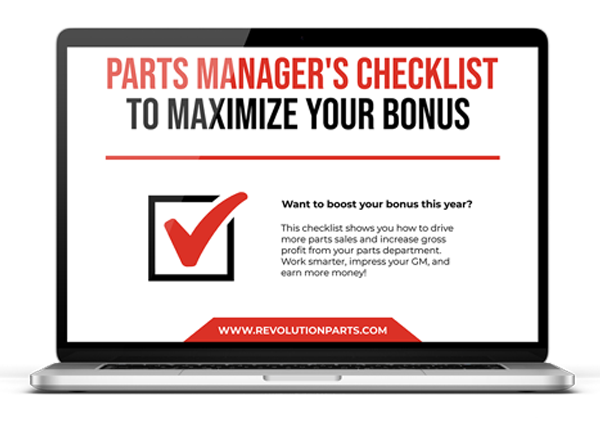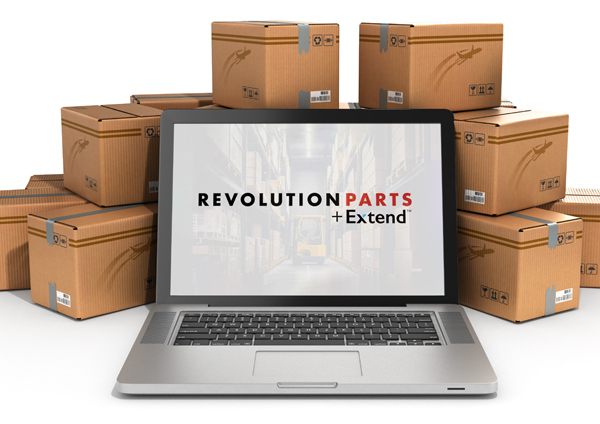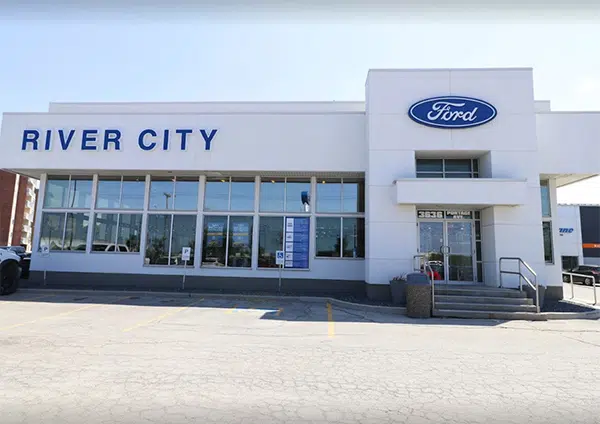If you’ve been selling online for any amount of time, you know that getting FOUND is the first step to success. Successful businesses are always looking for ways to boost parts website traffic, because whether it’s through advertising or SEO, making it easy for customers to find your website is a crucial key to success.
Every month, more dealerships start selling parts online. The long-time sellers have an advantage, since they’ve had time to build up marketing efforts and improve SEO.
But it’s not hopeless for the new sites, and there’s one key trick that many dealerships are choosing to ignore…
The Trick: Inbound Links
When another website links to your website, it’s called an “inbound link.”
Inbound links are a powerful thing. They show Google that your website is trustworthy and valuable to internet users, and will rank your website higher in search results as a reward.
Now, we need to be clear: Adding inbound links isn’t guaranteed to get your parts website into the #1 spot. SEO is comprised of many different factors, and inbounds links are just one of them.
But many dealers choose to ignore adding one of the easiest inbound links available to them, and a link with enough credibly to make a difference.
We’re talking about the inbound link from your main dealership.
Your dealership’s main website is a powerful, credible source that can help your parts website succeed. It’s already been established as “credible” by Google, so having your dealership link to your parts website creates a strong inbound link.
Reasons why you should link your parts website and dealership:
1. It helps your Parts Website get started.
When you first launch your parts website, it’s unlikely to instantly rank #1 on Google. It’s too new to be considered “credible.”
Adding the powerful inbound link from your dealership can help your website get indexed faster. This means Google will notice your parts website sooner and start listing you in search results. It may not make the 1st page of search results right away, but it’s better than nothing.
2. It’s a free, easy way to boost parts website traffic.
Some website owners spend a lot of time and effort building up their site SEO. Credible inbound links can be surprisingly hard to get. Actively guest-blogging for automotive websites or sharing your website in auto forums takes time and sometimes money, and the quality of that link can vary.
Your dealership website is basically FREE advertising for you. Plus, adding the link should take hardly any time at all.
3. The SEO boost lasts as long as the link is active.
Once you add the link, you get to enjoy the SEO boost forever. It’s a one-time investment that doesn’t even cost you anything.
The quality of inbound links doesn’t decay over time, so your website will constantly benefit from making the connection.
That said, when you remove the link, the benefits end.
4. It helps build brand authority and credibility.
When a shopper stumbles upon your website, there’s a good chance they don’t know who you are. And humans are naturally suspicious of strangers.
The shopper might not know if you’re a real, legitimate seller. We’ve even had shoppers contact us at RevolutionParts to ask if certain parts websites were legitimate and safe to buy from (Don’t worry—we assured them that yes, we only work with legitimate dealers!).
The link to your dealership can help reassure them that you are a real, trustworthy dealership based in the US—not some scam. This also goes for adding your phone number and address to your parts website, so you’re easy to contact in case a customer has suspicions!
5. It captures sales from local customers that might have shopped somewhere else.
When customers click on your parts website from the dealership website link, they have somewhere to buy right then and there. Without the option, they’d easily find another parts website to buy from.
Chances are, they’ll buy from you. You’ve made it easy for them, and they know your dealership. It goes back to reason #4—they already trust your dealership, so it’s easier to get the sale from them.
Will local customers be upset to see a lower price online versus at the counter?
With so many benefits, why do so many dealerships choose not to link their dealership websites? Mostly, they’re worried about local customers finding out about the cheaper prices online and getting upset about being “ripped off” at the parts counter.
In truth, this shouldn’t be such a cause for concern.
Most customers won’t even notice.
Most customers won’t think to look online, and when they do, they probably don’t have your in-store prices memorized. As for the few customers savvy enough to figure it out, they’re also savvy enough to find a better price online anyway. It’s better that they buy from you, even if it’s at a lower price than at the counter.
Large retailers do it all the time.
Brands like Target and Best Buy regularly have better pricing online versus in-store. Again, most people don’t notice, and of the customers that do, they aren’t upset.
At this point, everyone knows that the internet is more competitive and they expect to see lower prices online. These retailers are happy to price-match online prices to keep customers happy.
Customers will simply be happy to get a lower price.
Why would customers be upset to stumble across a surprise discount? Next time they need to buy something, they’ll know they can buy online from you for a good price.
Sure, you won’t make as much profit on the sale as if they had visited your in-store counter. But they’re a loyal customer now, and loyal, repeat customers can have a HUGE impact on the success of your parts website.
RELATED: 7 Pricing Mistakes that are Hurting your eCommerce Store
Ways to Handle Local Customers When Selling Online
Financially, using this to boost parts website traffic is worth it. But if you’re still concerned about your local customers, there are some simple solutions to keep it from being a problem.
Not all of these tactics are recommended, since they can give your customer a poor experience, but in the end the choice is yours.
1. Exclude your local area from seeing your advertising
If you or your marketing agency is advertising with Google AdWords, it’s really easy to exclude people within a radius of your location from seeing your ads. This way, you’re only marketing to non-local customers.
A lot of customers come to a site from Google Shopping or Google Search campaigns. Even though your online price is lower, you won’t be advertising it to everyone.
Local customers might still find your lower online prices by chance, but this trick will reduce the likelihood of it happening.
2. Price-match the online price
If a customer comes to your parts counter with your website price on their phone, offer to price-match the online price.
Sure, it cuts into your total profit, but it also saves you the time and hassle of packaging and shipping the part instead.
It also guarantees that YOU get the sale right then and there. If you refuse to price-match, some customers will leave and buy online from a competitor. Once they leave your parts department, there’s no saying where they’ll actually buy.
3. Online-exclusive price
If a customer visits your parts counter to point out the lower online price, say that it’s an “online exclusive price/sale.” These kinds of exclusive online sales are common, and customers will usually understand (although some might get not be too happy with this).
They’ll probably choose to order online for the lower price. But again, there’s no way to guarantee they’ll buy from your parts website. There’s a chance that they’ll find a better price with another retailer and shop with them instead.
4. Not recommended: Exclude local customers from online prices.
Post on your website that online pricing is not available for customers in a certain zip code. By simply excluding your local customers from your low online prices, you avoid the matter entirely.
However, this ruins a customer’s experience with you. It will upset them even more than knowing that your online price is less than the counter price.
5. Not recommended: Charge an extra fee for local pickup.
Even though they can buy at the lower online price, you might choose to discourage local customers from buying from your parts website with a fee.
Again, though, it’s a poor customer experience that will likely upset them. Most customers choose local pick-up to avoid the shipping price, so a fee will lower their opinion of your dealership.
Conclusion
We strongly recommend the price-matching your online price if a customer brings it up at your parts counter. It’s what customers expect. You don’t have to mention to in-store customers that you have a lower price online, but if they’ve done their research and can point out the sale on their phone, give it to them.
They won’t be mad about a lower online price. Instead, they’ll be mad if they’re not allowed to buy at that lower price. It ends up hurting your dealership two-fold, since you’ll lose their online business AND their local business.
At the end of the day, putting your customer first is the best way to gain their loyalty. Linking your parts website and dealership website will give you a worthwhile boost to parts website traffic, and it doesn’t have to hurt your local relationships.


